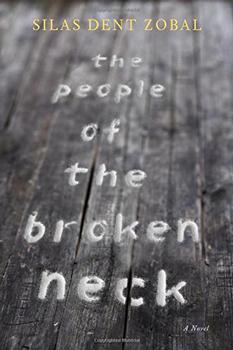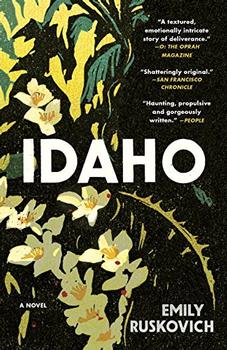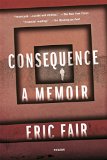Summary | Excerpt | Reviews | Beyond the book | Read-Alikes | Genres & Themes | Author Bio

The cat-and-mouse chase begins right from the opening page. Camped out in the woods with his teenaged son, Clarke, and 11-year-old daughter, Kingsley, Dominick Clarke Sawyer knows he is a hunted man. The kids are in the dark – often both literally and figuratively. They don't understand what Dad, a war vet, has done to have the cops hot on his trail. In their broken and disjointed world, they're barely coming to terms with Mom's abandonment about a year ago. Dominick, because of his various deployments to Iraq and Afghanistan, has been a stranger through most of the kids' formative years but now he's all they have against the uncertainties of the hostile world. So, tempered though their feelings toward Dad might be, Clarke and Kingsley are nothing if not loyal – they know they have to create an impenetrable shield around themselves if they are to collectively survive as a family.
The cops have come and gone, inspected the wood cabin by the Susquehanna River that the Sawyers had lived in for years, but found nothing. Their suspect is missing. What the Feds miss – but Dominick doesn't – is an ominous message, "thin trails of salt scrolled in alphabetic shapes. Whorls and straight lines. Wasp, read the words in salt, Neck, Broken." Boom. The kids know something is up but Dad won't tell. "Whose blood was on the floor?" Clarke asks his father of the drops they find in the cabin. "I'm not going to tell you," Dominick replies, because of "what you might think of me."
The genius of this story is that we, the readers, are in the same place as the kids are here. We don't know what Dad is hiding (he doesn't tell us either), we don't know who wrote that mysterious message, or the rest of them that keep surfacing with alarming regularity. But we are scared of the big lurking woods, of the mean cops, and play along, trusting in the only adult around who might lead us to answers or safety. Without time to think, we are swept along in the mad dash to escape and shake off the bad guys hot on our trail.
On the other side of this cops-and-robbers story, FBI agent Charlie Basin might not appreciate the wide-angle view of Dominick's situation either, but he knows the fugitive could be armed and dangerous and that he could pose a problem to his children. After all, before she disappeared, the kids' mother (and Dominick's wife) Sarah had called the cops saying she believed the kids were being abused by their Dad. Why then would Sarah leave? Charlie doesn't know. He has to hunt Dominick down because the war vet is to be brought in for questioning about the murder of the town sheriff.
The two men on either side of this story are both flawed with a whole host of vulnerabilities. Charlie has a fractured relationship with his suicidal daughter even as he is taking the measure of another man's parenting abilities. The novel dives in medias res, throwing the reader in the middle of the action, and it's only as we move along cross-country at a fairly frenetic pace that the picture of Dominick slowly gets filled in.
Frustratingly, one of the mystery elements that propels the narrative forward turns out to be somewhat of a red herring, and the relentless chase gets tiring after a while. Nevertheless even these bumps feel true to how life sometimes turns out to be: what you think is the most important element in a landscape is a mere distraction from what really looms ahead.
Unbridled Books has nurtured the early careers of many talented authors including one of my favorites, Emily St. John Mandel. In Zobal, they have another winner. His clipped and poetic prose is saturated with the weight of its storytelling obligations and delivers handsomely. "He did not think about those he had killed at war, about the film that overwhelms one's eyes, about the arterial pump of blood, about the knife that cut flesh with the ease with which a kitchen knife splits ribs," Zobal writes about Dominick and his struggles with PTSD. "He did not think about how he had once imagined people to be more solid, more sustained than they are, about what he'd learned of fragility, especially his own."
The biggest element of suspense is not whether Dominick and his kids can find safe harbor as they flee the authorities from their Pennsylvania home to Maine to the Pacific Northwest. The question here is: can we truly trust a flawed person like Dominick? The answer is mostly worth the price of admission.
![]() This review
first ran in the November 2, 2016
issue of BookBrowse Recommends.
This review
first ran in the November 2, 2016
issue of BookBrowse Recommends.

If you liked The People of the Broken Neck, try these:

by Emily Ruskovich
Published 2017
From O. Henry Prize–winning author Emily Ruskovich comes a stunning debut novel about love and forgiveness, about the violence of memory and the equal violence of its loss.

by Eric Fair
Published 2017
A man questions everything - his faith, his morality, his country - as he recounts his experience as an interrogator in Iraq; an unprecedented memoir and "an act of incredible bravery." (Phil Klay)
Your guide toexceptional books
BookBrowse seeks out and recommends the best in contemporary fiction and nonfiction—books that not only engage and entertain but also deepen our understanding of ourselves and the world around us.